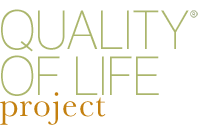 Last week I had the opportunity to sit down with Jacqueline Novogratz, founder and CEO of The Acumen Fund. She is one of the most innovative and interesting philanthropists around today. Her non profit has taken on the world’s poverty problem by directly investing capital in developing world businesses that have the potential to deliver critical goods and services like health, water, housing and energy.
Last week I had the opportunity to sit down with Jacqueline Novogratz, founder and CEO of The Acumen Fund. She is one of the most innovative and interesting philanthropists around today. Her non profit has taken on the world’s poverty problem by directly investing capital in developing world businesses that have the potential to deliver critical goods and services like health, water, housing and energy.
More than anything, Jacqueline is a very likable person. She’s funny and light and her self deprecation is genuine not a gesture. We had a great conversation and I gathered some great quality of life practices for my book and site. She revealed some incredible insights in our conversation. This is the one that I have continued to think about the most:
“I’m more interested in justice than I am in mercy. I think compassion is really important but compassion without discipline is anemic. And so do you have the courage to be tough, focused, goal-oriented, driven, but simultaneously caring, compassionate, and open minded. That’s the balance that I think none of us do perfectly because it’s such a hard thing to hold both sides of things.”
There is tremendous discussion opportunity with this insight, whether as a way to understand the differences between liberal and conservative mindset (with the enlightened approach seemingly in the middle), as a means of tackling the world’s tough problems or how we live ourselves and raise our families.
While compassion and justice are obviously not mutually exclusive traits, holding both is not a default capability that we as humans have. You have people on the far left of the political/ideological spectrum that have soft, open hearts open to the suffering of all, yet what good if they can not put a just plan into action using effective force when necessary. And you have people on the far right side of the political/ideological spectrum that have justice oriented minds yet what good if they are going about it with narrow mind.
[In any free society around the world, you may find 40% of the population in the camp on the left, 40% in the camp on the right, and 20% with an appreciation of a balanced approach. It is interesting that people in the middle are “independent” types — the exact trait that makes people not feel a need to belong to a particular “tribe”. I digress but until people can become truly independent, they will feel a need to join a “tribe” and thus hold us back as a society in finding the ideal, blessed middle ground.]
My wife and I have been married for six years and are still communicating to find the ideal medium of compassion/justice (and selflessness/selfishness for that matter). But we are doing a pretty good job. We are fortunate because while we may have had some struggles in reconciling our families’ styles, in the end it has made it easy for us to find the right balance, which for us truly is in the middle.
Thank you Jacqueline for the wonderful insight which I know my readers will benefit from!
